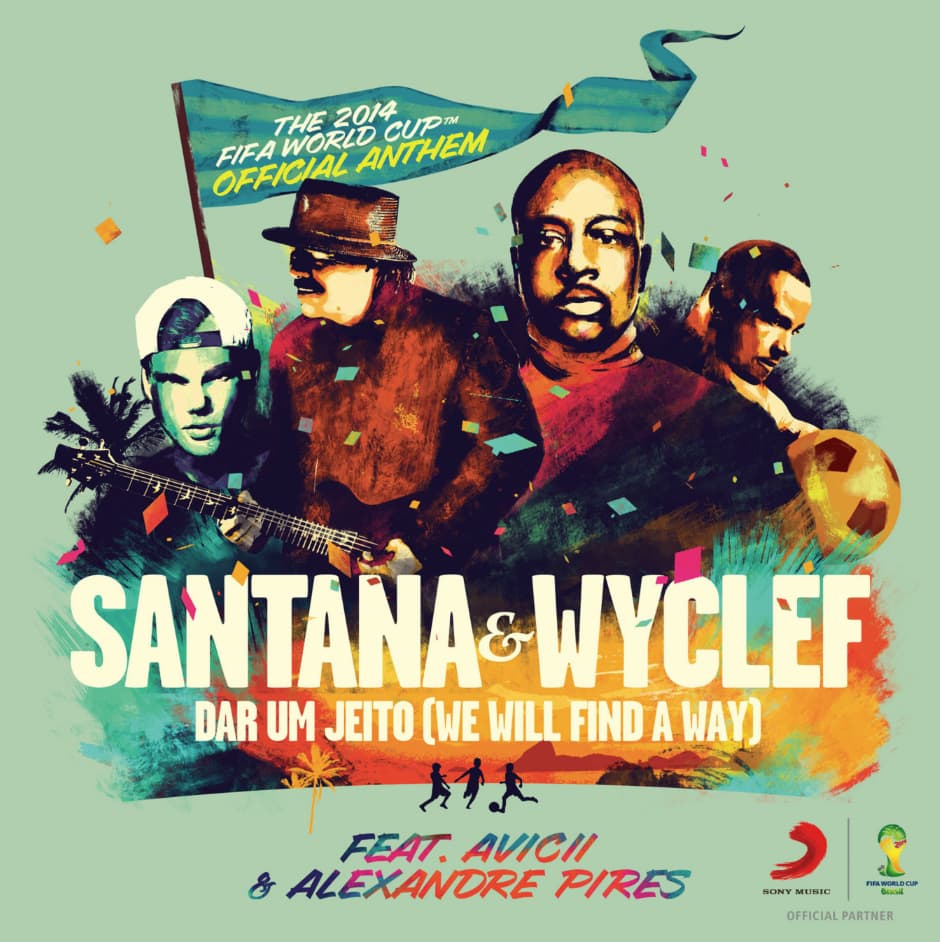
Finding Unity Through Music and Sport: Carlos Santana’s Anthem of Resilience
In the vibrant lead-up to the 2014 FIFA World Cup in Brazil, a special kind of musical energy was needed – a song that could capture the spirit of global unity and the thrill of competition. Enter the legendary Carlos Santana, who, along with a stellar lineup of Wyclef Jean, Avicii, and Brazilian singer Alexandre Pires, delivered “Dar um Jeito (We Will Find a Way).” Released on April 29, 2014, this dynamic track served as the Official Anthem of the 2014 FIFA World Cup, embodying a message of perseverance and collective determination. While not a traditional chart-topper in the vein of Santana’s earlier hits, the song did reach number 14 on the US Hot Dance Club Songs chart, its true impact lying in its global reach and its role in one of the world’s most celebrated sporting events. This collaboration brought together diverse musical styles, blending Santana’s signature Latin rock guitar with Wyclef’s hip-hop sensibilities, Avicii’s electronic dance beats, and Alexandre Pires’ Brazilian rhythms, creating a truly international sound.
The story behind “Dar um Jeito (We Will Find a Way)” is intrinsically linked to the FIFA World Cup itself. FIFA and Sony Music Entertainment sought an anthem that would resonate with fans worldwide, a song that spoke to the unifying power of football. The selection of Carlos Santana, a globally recognized icon whose music transcends cultural boundaries, was a masterstroke. The collaboration with Wyclef Jean, known for his socially conscious lyrics and diverse musical palette, further broadened the song’s appeal. The inclusion of the late Swedish DJ Avicii brought a contemporary electronic edge, while Alexandre Pires ensured a strong Brazilian flavor, essential for a World Cup hosted in his home country. The anthem was executive-produced and co-written by Arnon Woolfson, who is credited with originating the project. This coming together of such diverse talents underscored the very theme of the song: finding a way, together, regardless of differences.
The meaning of “Dar um Jeito (We Will Find a Way)” is beautifully encapsulated in its title. “Dar um jeito” is a common Brazilian Portuguese phrase that translates to “to find a way” or “to figure it out.” In the context of the World Cup, this phrase takes on multiple layers of significance. It speaks to the relentless effort and ingenuity displayed by athletes striving for victory, the unwavering support of fans who believe in their teams against all odds, and the global community coming together to celebrate a shared passion. The lyrics, sung in both English and Portuguese, emphasize themes of unity, resilience, and the unwavering human spirit in the face of challenges. Lines that speak of overcoming hardship and celebrating together resonate universally. It’s an optimistic and uplifting message, perfectly suited for an event that brings together nations in a spirit of friendly competition. The song encourages listeners to believe in their ability to overcome obstacles, both on and off the field, echoing the determination inherent in the pursuit of dreams.
Beyond its role as the official anthem, “Dar um Jeito (We Will Find a Way)” is a testament to Carlos Santana‘s enduring ability to connect with audiences across generations and cultures. Even at this stage in his illustrious career, he remained relevant and open to collaboration, embracing new sounds and platforms. The song was featured on the official album of the 2014 FIFA World Cup, “One Love, One Rhythm,” alongside tracks from other international artists, further highlighting its place within a global musical celebration. Santana, Wyclef, and Alexandre Pires even performed the anthem at the closing ceremony of the World Cup in Rio de Janeiro on July 13, 2014, a fitting culmination to a tournament filled with excitement and passion. While perhaps different in style from his classic rock anthems, “Dar um Jeito (We Will Find a Way)” stands as a vibrant example of how music can unite the world, carrying a message of hope and the unwavering belief that together, we can always find a way.